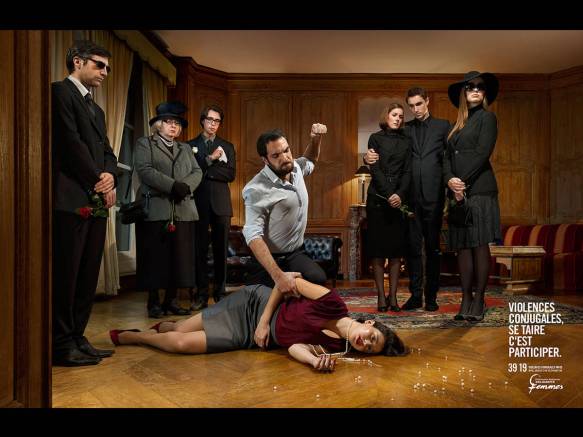Before I point my finger at France: 93 women killed by their husbands, companions or ex-companions during the year 2020, it should be known that the numbers are higher in my native country. CANADA: 148 women killed by their husbands, companions or ex-companions during the year 2020. That’s 148 too many.
I’m shocked. And there I was thinking that femicide was a French thing, a Latin thing, a police-problem thing. No. It’s a global thing, and it makes me frustrated and angry. Just as the murdering of one’s wife used to be called – and is still called in unevolved parts of France – a crime passionnel, a crime d’amour or a crime de passion in order to lessen the sentence or exonerate the killer entirely, the same laissez-faire attitude appears to extend to other rich, “civilized” countries. Where in the world, I wonder, is this tragedy being taken seriously? Nowhere.
“What continues to kill us is impunity.”
Sandra Moran, longtime champion of women’s and Indigenous rights, Guatemala.
Femicide: the killing of females by males because they are female. A form of terrorism that functions to enact and bolster male dominance, and to render women chronically and profoundly unsafe.
In Canada, guns are the most commonly used weapon in the murder of women and girls. In France, it’s knives and beating.
Violence against women is an issue that transcends borders, class and socio-economic status.
Latin America has the highest numbers of femicide with Brazil and Mexico leading.
The home is the most dangerous place for women where 61% are killed by their partner or ex.
The risk of a woman being killed by an abusive partner increases when she leaves, or plans to leave.
Society still blames the woman, it’s a shaming process. A woman is admonished if she does not leave an abusive relationship, but equally seen as a failure if she does. There’s also a widely held belief that it’s better for children if the woman stays.
In 2019 and following the death of Salomé, 21, France’s 100th victim of femicide, the French government announced a raft of measures. But President Macron received a reality check when he listened in on a call at a domestic violence hotline centre.
A woman, who had endured decades of abuse from her violent husband, had finally built up the courage to leave him. She had asked a police officer to accompany her home so she could collect some belongings, but the officer refused, insisting he needed a judicial order to intervene. (Why is it the woman who must leave the home and go to a shelter?!?)
He was wrong, but the helpline had no legal authority and the operator could only direct the victim to a support group.
President Macron shook his head in frustration. “Does that happen often?” he asked the operator. “Yes,” she responded, “More and more.”
In 2003, Marie Trintignant, French actress and daughter of actor, Jean-Louis Trintignant, was beaten to death in a Lithuanian hotel room by her then-boyfriend, Bertrand Cantat, lead singer of the French rock group, Noir Désir. Cantat repeatedly punched Trintignant in the head, leading to her death six days later from swelling to the brain. She was 41.
Cantat claimed it had been an accident, a crime of passion. The truth is that he was jealous because of an SMS message Marie had received from her ex-husband. Convicted of “murder with indirect intent” Cantat served only half of an eight-year prison sentence.
“I’m delighted with the decision,” said Cantat’s lawyer when his client got out only 4 years later. “It will allow him to rebuild his future.”
And Marie’s future? Or her parents, robbed of their child? Or her own children, robbed of a mother?
Cantat was convicted of the crime in Lithuania’s capital, Vilnius, but complained that he was far from home. He was allowed to serve his sentence in a French prison to be near his family.
A year ago, a group of female activists who call themselves “les colleuses” (gluers) began papering the walls of Paris with slogans and the names of all French women killed by their companions. They only paper at night. They say they’re more afraid of rogue men shouting insults at them than they are of the police. How sad that we must rely on ordinary citizens (all women, there are no men in this group) to ring the alarm bell while the government’s response is lukewarm. Video below.
(161) “PAPA IL A TUÉ MAMAN” : la révolte des Collages Féminicides | Tous les Internets | ARTE – YouTube






